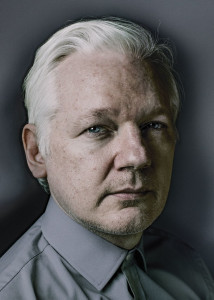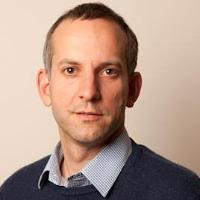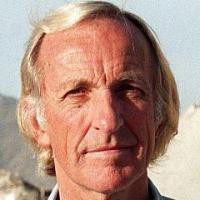


Jonathan Haewood, John Pilger & Julian Assange - Propaganda, Facts & Fake News, Part I & II
We live in an era of fake news. Fabricated reports go viral on social media. Totally false stories are concocted then tweeted and retweeted. Fantastical theories and wild claims are circulated in cyberspace. It's as Orwell says in 1984, "The lie became truth." There is a lot of fire and fury inflaming the news cycle. The term fake news is an all-purpose smear, used by the president and his supporters to deride and dismiss reporting they don’t like. A recent study found that Facebook was by far the platform through which people used to get to a fake news site. The report also noted that older, less educated people were particularly susceptible to fake news. Are facts up for grabs? How are we to navigate the mine laden waters of propaganda and fake news?
Fake news is nothing new; nor is partial news, buried news, spin, blow-back, black propaganda. It has other names at public relations and advertising firms. Usage of the term rose by 365% since 2016. The term was named Collins' Word of the Year 2017. It was added to the Collins Dictionary defined as “false, often sensational, information disseminated under the guise of news reporting.” Yet on this side of the Atlantic Ocean . . .The annual Marist College poll of Most Annoying Words and Phrases found “fake news” among the most annoying words of 2017. Indeed fake news annoys. It’s used to create crazes. It clouds the public mind. Recognizing outright propaganda can be more difficult. The sophisticated methods deployed by state and corporate actors are laid out in the seminal work by Noam Chomsky and Edward Herman in Manufacturing Consent and other media critics. But media literacy does not come easy. Hard facts have a hard time seeping into our media. The resulting sarcasm in political culture can slip into cynicism and collective inertia.
Julian Assange, journalist, activist and computer programmer is the founder of WikiLeaks, the whistle-blowing website. WikiLeaks collects and shares confidential information on an international scale. He sought asylum in the Ecuadorian embassy in London in 2012 to escape allegations of sexual assault. Those charges have since been dropped. Nevertheless, he believes that if he leaves the embassy he will be nabbed by the U.S. and prosecuted for publishing thousands of classified documents made available by Chelsea Manning. In 2016, his work again drew enormous attention when WikiLeaks published thousands of emails from U.S. presidential candidate Hillary Clinton and the Democratic National Committee.
Jonathan Heawood is the founder and director of IMPRESS, an independent press regulator in the United Kingdom. He has previously worked as a journalist and human rights campaigner, and he is a former director of English PEN. He has written on free speech and regulation for various publications.
John Pilger is an internationally renowned journalist and documentary filmmaker. Born in Australia, he has long been based in London. He has twice been selected as Journalist of the Year. His award-winning documentaries include Palestine is Still the Issue and The War on Democracy. He is the author of The New Rulers of the World and Freedom Next Time.
- KBOO


